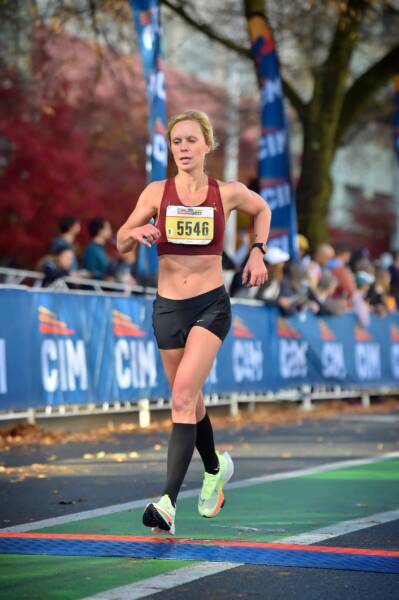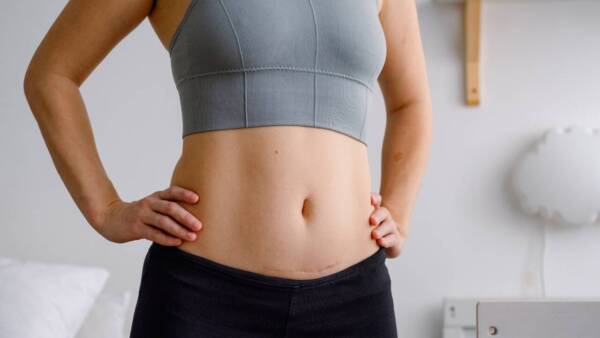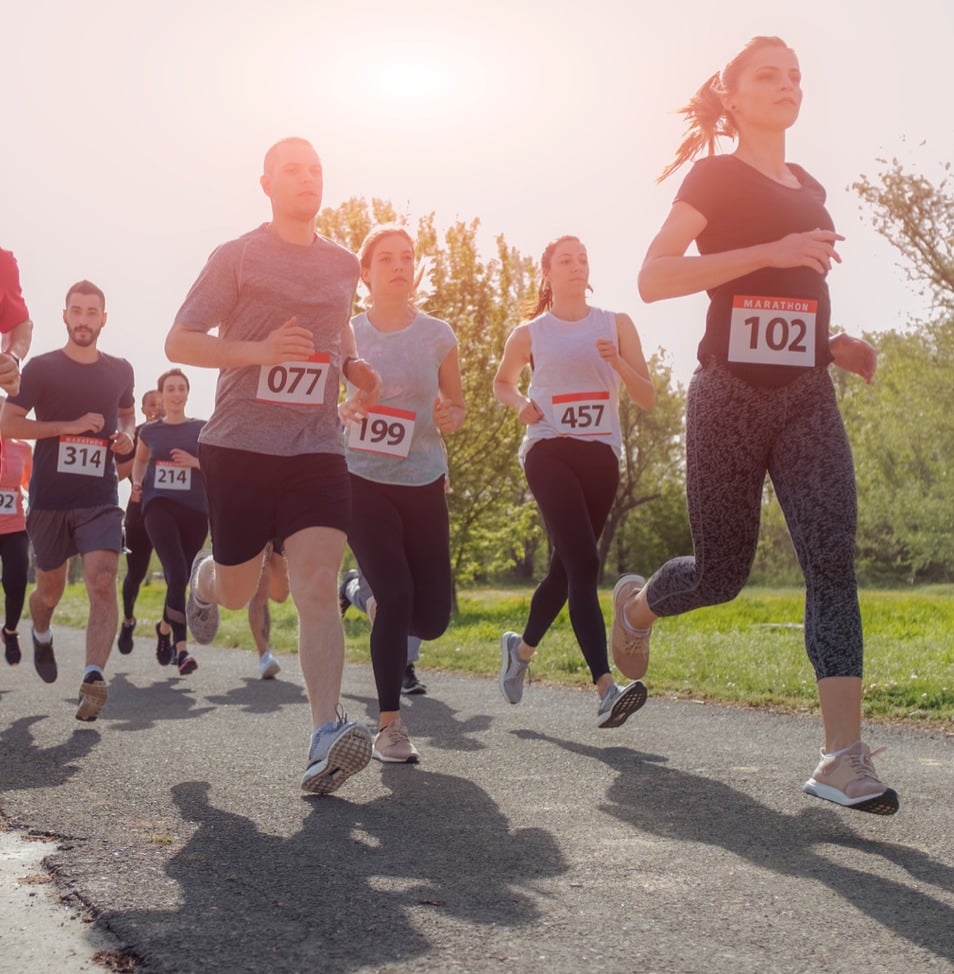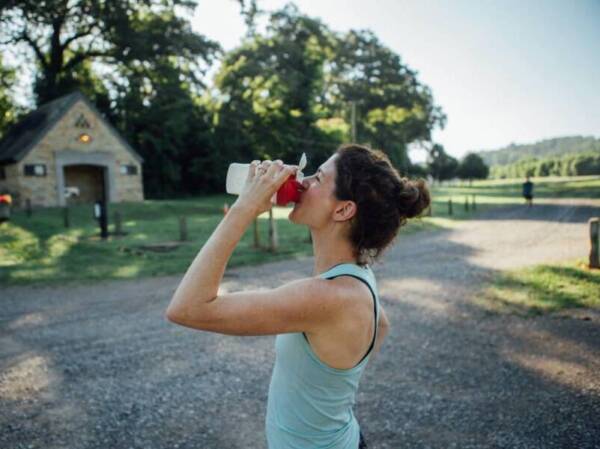How to Carb Load for a Half Marathon
Increasing how many carbohydrates you eat two days before your half marathon can improve your performance, studies show. Aim to eat easily digestible carbs that you normally eat and increase carb 8-10 grams per kg (2.2 lbs) of body weight. Learn more about how to carb loading before half marathon, including what to eat, below.
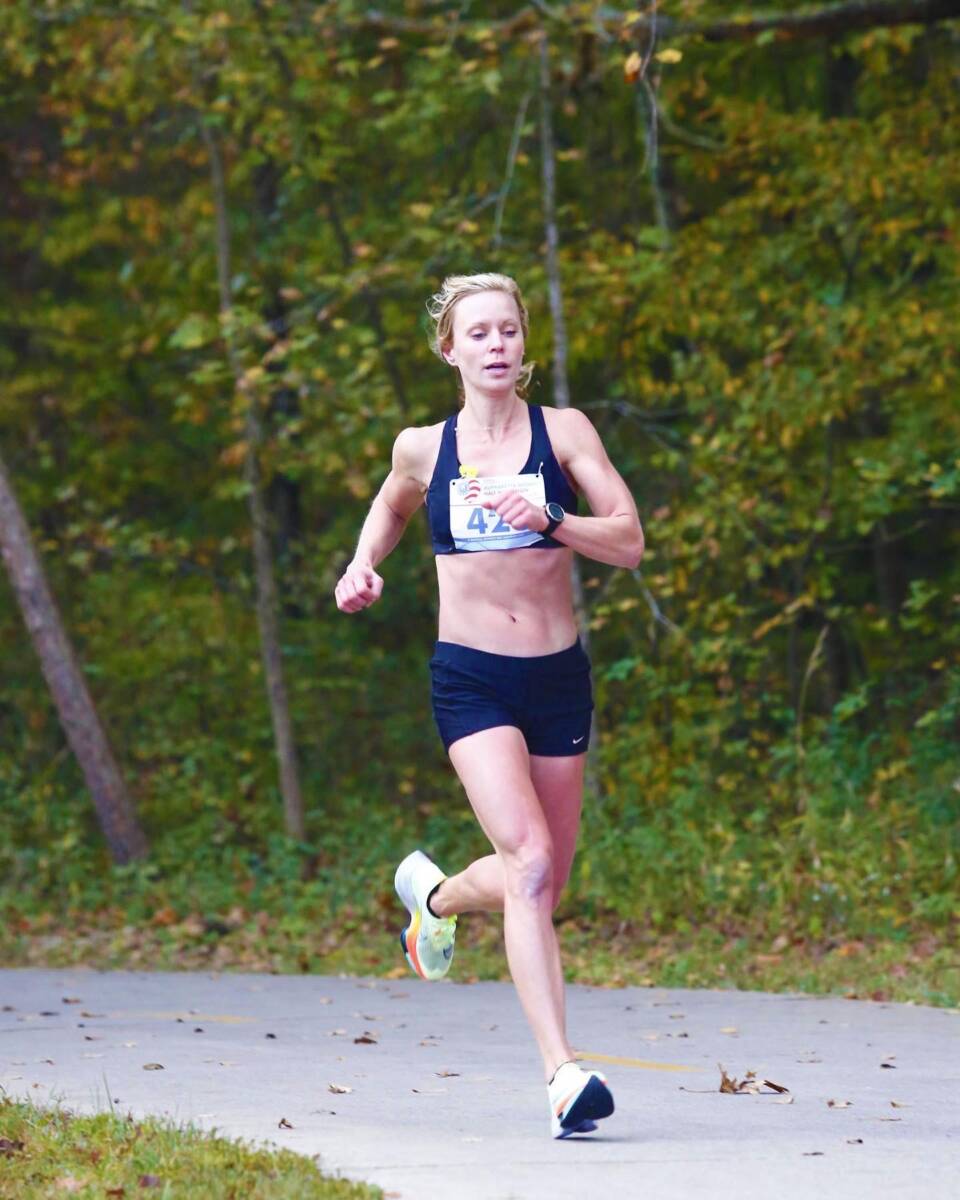
Carb loading before half marathon—is it necessary? If you plan to run a half marathon in a time that exceeds 90 minutes, then yes—carb loading is essential to your success.
Carb loading, where you eat more carbohydrates than normal before an endurance event, gets a bad reputation because it can cause weight gain and stomach upset. The weight gain is normal and means it’s working since carbs help you retain fluids needed to keep you hydrated for your race.
Table of contents
The stomach upset, however, is because lots of people do carbohydrate loading wrong. They load up the night before their race on a huge pasta dinner or foods they don’t typically eat and feel awful the next day.
I want to help you nail your carb loading before half marathon. I got with Megan Robinson, registered sports dietitian, to lay out your nutrition plan for half marathon training and racing. (And, get your carb loading guide for the marathon here). Let’s go!
Is carb loading necessary for running a half marathon?
Carb loading is necessary for runners who are running for longer than 90 minutes. If your half marathon time is going to be less than 90 minutes, then you may not need to carb load.
Additionally, runners who are running shorter distances such as a 10k or 5k do not need to carb load as their times will not exceed 90 minutes of running.
If you plan to run a half marathon or marathon, then you need to carb load. And because the stomach is a muscle that needs to be trained—practicing carb loading on your training long runs is crucial.
Carb Loading: When to Start
So, how do you start carb loading? First, practice carb loading one day before for your longer training runs, says Robinson. Aim to eat about 25 percent more carbs the day before. This will help your body learn how to stock glycogen and adjust to performing with more glycogen in your system. It will also help you know what makes you feel and run your best.
Now, when to start carb loading for half marathon? Robinson recommends doing a 2-day carbo load. She suggests increasing carbs to 8-10 grams per kg (2.2 lbs) body weight, while decreasing dietary fiber, protein, and fat to avoid GI issues. So, if you weigh 130 lbs, you would aim for about 470 g of carbs both days.
That may sound like a lot! But you can easily take in more carbs without feeling bloated or getting constipated if you drink your carbs with a sports drink such as Maurten or Skratch, fruit juice like Naked Juice or cherry juice, and stick to low FODMAP foods (fermentable short-chain carbohydrates which are easy to digest) such as rice, quinoa, and fruit.
Aim for your plate to be about half carbohydrates. Eat carb-rich snacks such as crackers. Get 20+ snack ideas here.
Good Carbs for Runners: What to Eat When Carb Loading
Below are some good carbs for runners:
- potatoes
- oatmeal
- quinoa
- rice
- pasta
- toast
- pancakes
- bagels
- fruit
- raisins
- fig bars
- pretzel rods, soft pretzel, or sourdough pretzels
- flavored rice cakes
- graham crackers
- Clif bar
Below are good carbohydrate-loading meals:
- Spaghetti and ground turkey meatballs a small side salad
- Chicken stir fry with veggies
- Lean protein like chicken plus veggies (avoid brussel sprouts, cauliflower, and broccoli which can make you gassy)
- Turkey burger on a bun with a baked potato
- Chicken kabobs over rice
- Potato skins with cheese and tomatoes and spinach
- Oatmeal with honey and a banana
The Science Behind Carb Loading
So, how does carb loading help runners?
Carb loading stocks your body’s glycogen stores. Glycogen is your body’s main fuel source for long-distance running (aerobic running). Carbohydrates are stored as glycogen in the body—so by eating more carbs, you have more glycogen, and thus you have more fuel for your race, explains Robinson.
Thus, carb loading before a race helps runners stock glycogen stores in the liver and muscles so they can run faster for longer and avoid bonking. In fact, a study found that those who carb-loaded before a marathon ran more than 14 percent faster than those who didn’t! Carbs also help your body retain water. This keeps your blood moving, getting oxygen to your working muscles.
However, your glycogen stores can only fuel about 90-120 minutes of exercise. This is where fueling with energy gels and drinks come in. You can read more about that here.
More Tips for Your Nutrition Plan for Half Marathon Training
Tip 1: Drink drinks with carbs.
Increasing your carbohydrate intake can run the risk of feeling sluggish, bloated, uncomfortably full, and lethargic. Drinking drinks that have a high carb content can negate this. Aim to drink healthy drinks with carbs such as Skratch or Maurten sports drink or a fruit juice such as Naked Juice or tart cherry juice, which has the added benefit of lowering inflammation ahead of your race.
Tip 2: Stick to foods you know.
Don’t eat any carbs on this list you don’t know before your race. Never had quinoa before? Trying it the day before your race is a bad idea. Eat foods your body is comfortable with digesting to avoid any unwanted stomach upset.
Tip 3: Biggest meal is the lunch before race.
The race night pasta dinner is not a smart carb-load strategy. Your biggest carb meal should be lunch the day before your race. This will allow time for your body to digest and store the carbs as glycogen. Eating a big meal the night before your race may not be fully digested—defeating the purpose of the carb load—and can make your stomach unhappy.
Tip 4: Practice on long runs.
Practice makes perfect. Practicing a carb load the day before your long runs will get you into a good habit, allow you to know what works best for you, and will help your body learn how to hold onto glycogen so you have a better food source. Do this for a few long runs in your training cycle. It’s not necessary for every long run.
Tip 5: Eat hours before your race.
Just as you want to start carb loading days before your race, eat well-before your race, too. This will allow you to take in more carbs, digest them, and store them. Robinson recommends the following for timing of breakfast before your race:
o 1 g carb/kg body weight- 1 hour before race time
o 2 g carb/kg body weight- 2 hours before race time
o 3 g carb/kg body weight- 3 hours before race time
o 4 g carb/kg body weight- 4 hours before race time
Tip 6: Take a gel at the start line.
Ten minutes before you line up to race your half marathon, take one energy gel to “top off” your glycogen stores. (By the way, along with a carb loading plan, you should also be thinking about your race day fueling strategy).
Tip 7: Hydrate!
Don’t forget about hydration! Along with eating more carbs two days before your half marathon, you should be drinking water. Carb loading allows your body to hold onto more fluids (one gram of carbs holds onto about 3 grams of water) which will also help you perform and recover better on race day. Pre-hydrate with a sports drink race day morning.
Tip 8: Eat a little bit of fiber.
You don’t want to eat too much fiber (or fat or protein) during half marathon diet carb load, but about 20-25 grams of fiber per day along with good hydration will keep you regular.
Tip 9. Hire a running coach.
Hiring a running coach (like me!) can help you take the guesswork out of carb loading and half marathon tapering so you avoid common mistakes and are ready to perform your best!
What does your carb loading plan look like for a half marathon?


